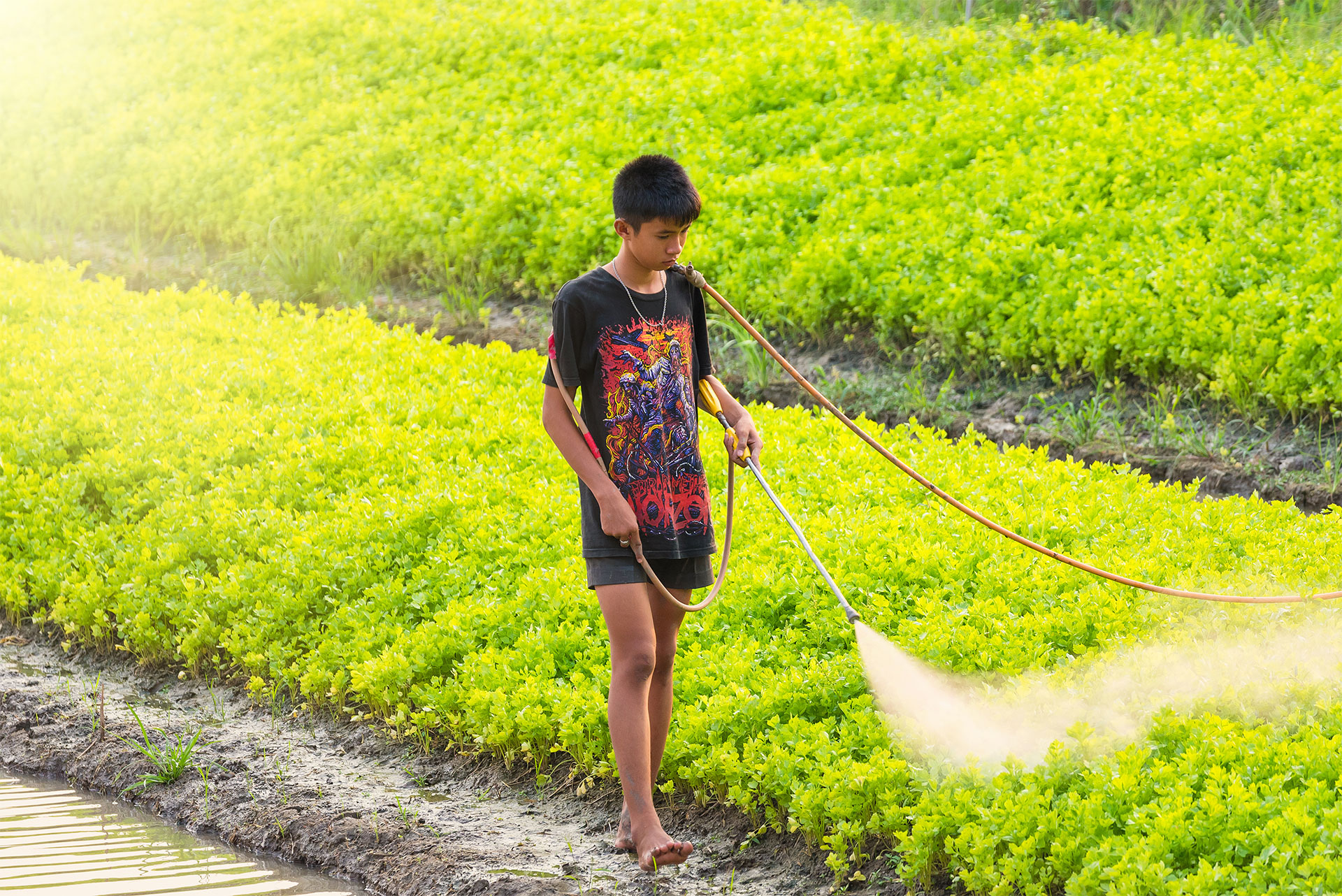Penang, Malaysia–Regional advocacy group PAN Asia Pacific (PANAP) welcomed the call of United Nations experts for urgent action to address the alarming increase in child labour and protect children from hazardous work, especially in agriculture where an estimated 108 million children working on farms and plantations are exposed to toxic pesticides.
On the occasion of World Environment Day, PANAP and its partners also launched its annual Protect Our Children from Toxic Pesticides campaign to raise awareness on the harms of pesticides on children, with the theme, “Children’s Rights to a Pesticides-Free World.”
On May 30, 21 independent UN experts issued a statement saying that multiple global crises “threaten to reverse years of progress against child labour.” In 2020, the number of child labourers around the world rose to 160 million–the first increase recorded in 20 years. Around 79 million children are engaged in hazardous work, including in the agriculture sector where 70% of child labour is concentrated.
“Tens of millions of children are engaged in hazardous work, where they are often exposed to toxic chemicals, including highly hazardous pesticides. To this day, children working in agriculture continue to be exposed to hazardous pesticides that are banned in the country of export, resulting in abhorrent double standards and discrimination,” the UN experts said. They further pointed out that “It is often the case that after exposure to toxic pesticides, the violation of a child’s right to physical integrity from toxics cannot be undone.”
Sarojeni Rengam, PANAP executive director, affirms the statement of UN experts. “Children breathe more air, eat more food and drink more water per unit of body weight compared to adults, which leads to greater exposure in a pesticide-contaminated environment. Early life exposure can damage their still-developing brain and nervous system, disrupting mental and physiological growth. Indeed, exposure to toxic pesticides is a constant violation of children’s rights, which can only be stopped with enough political will from policymakers,” Rengam said.
Pesticide Action Network is working towards a global phase-out and ban of Highly Hazardous Pesticides by 2030. “A global phase-out and ban of HHPs by 2030 is urgently needed to protect the millions of children in Asia who are exposed to pesticides not only in farms, but also in their homes and schools that are often situated right next to farms. A study by PANAP on children working in the floriculture industry in India shows that children suffer from various symptoms of pesticide poisoning and are exposed to pesticides drift even while studying in school or playing at home,” Rengam said.
PANAP’s Protect Our Children campaign encourages policy makers to ban pesticides that are most toxic to children, promotes agroecology as an alternative, and advocates for pesticide-free buffer zones around schools.
With these calls, PANAP’s partners in Vietnam, Pakistan, Philippines, Sri Lanka, India, Laos, Bangladesh, New Zealand, Malaysia, and Indonesia will conduct various activities such as art competitions, educational activities for students, meetings with parents and teachers, petition signing and lobbying for pesticide-free buffer zones around schools, organic farming, children’s theater, and storytelling starting June 5. ###








Discussion about this post